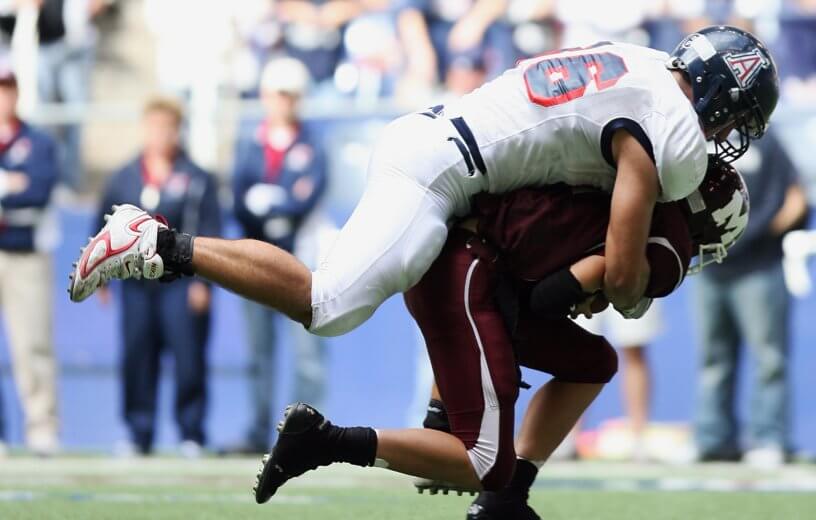BATON ROUGE, La. — Could playing college sports actually help students curb COVID-19? A new study has found that college football players diagnosed with COVID returned to practice quicker and experienced less severe symptoms than the average patient.
Researchers at Louisiana State University (LSU) received unprecedented access to the school’s student-athlete football players in order to take COVID-19 saliva samples back in 2020. The findings revealed that none of the football players experienced secondary infections after they isolated themselves for just 14 days. During that time, near the start of the coronavirus outbreak, the Centers for Disease Control and Prevention (CDC) recommended two weeks of quarantine after infection.
The LSU-based research revealed that the healthy young athletes were able to ward off more severe COVID-19 symptoms, unlike the millions of older Americans or people with comorbidities, such as diabetes.
“Salivary immunity is extremely important to ensure that people don’t contract secondary infections, so when athletes are coming back we need to make sure they are as healthy as can be. We found that the isolation period was sufficient to restore the athletes’ salivary immunity to the level seen in non-infected players,” says Guillaume Spielmann, an associate professor in LSU’s School of Kinesiology, in a university release.
Most student athletes didn’t even know they were sick
In total, saliva samples which researchers tested for COVID-19 were collected from 29 football players back in 2020, which was months before the release of the first U.S. vaccines. Just 14 of the student-athletes tested positive for the virus and 15 of them had zero traces of COVID-19. Among the 14 who tested positive, only six of them reported even mild symptoms during their two-week quarantine period.
The other eight LSU football players involved in the study were completely asymptomatic throughout the 14-day isolation period, the researchers report.
Researchers from LSU Athletics, the School of Kinesiology, and the Pennington Biomedical Research Center highlighted that the student-athletes were safely able to return to a contact sports like football without risk of a secondary infection. Moreover, their immune systems appeared to hold up even after returning to practice just 14 days later.
“When COVID-19 really started moving out of control, we met with Neil Johannsen, an exercise physiologist at LSU, and the athletic trainers Derek Calvert and Jack Marucci, and we discussed what we could do to make sure our athletes remained healthy. We especially wanted to make sure that athletes were not at risk for secondary infections when they came back from isolation,” says Spielmann.
“This kind of access is unique in Division I sports. You typically don’t have access to football players, so the fact that we have access is hugely instrumental as well,” the researcher continues. “LSU is a great place for this field.”
Unlike the student-athletes in the test, hundreds of thousands of people with diabetes or other pre-existing conditions such as obesity went on to suffer serious illness or death after contracting the virus early on during the pandemic.
“When the idea started for the research, we discussed why not turn something negative into a positive, and assist with the research to find some answers. If we can do things to understand the virus better, let’s do it,” concludes Jack Marucci, LSU’s Director of Athletic Training. “The student-athletes were willing to be a part of it.”
The study is published in the journal Scientific Reports.

